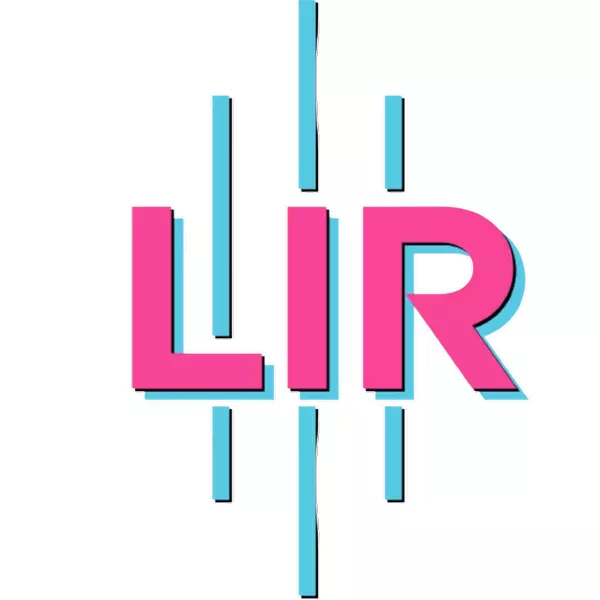The Ultimate Guide to Buying a Home in Charlotte, NC (2025)

Why Move to Charlotte, NC in 2025?
Charlotte, North Carolina, is a city on the rise—welcoming new residents daily with its robust job market, vibrant culture, and diverse housing options. In 2025, Charlotte stands out as an attractive destination for families, young professionals, retirees, and investors alike. If relocating, searching for a first home, or aiming to upgrade, exploring Charlotte’s real estate landscape is an exciting journey filled with opportunity, variety, and promise.
Whether seeking top-rated schools, energetic urban neighborhoods, or peaceful suburbs, Charlotte offers something for every lifestyle. This guide addresses the 20 most urgent questions buyers are asking in 2025, empowering home seekers to make confident, informed decisions in one of the nation’s hottest housing markets.
👉 Download your free Charlotte Buyer’s Guide for a complete roadmap.
👉 For video breakdowns and neighborhood tours, check out our YouTube Channel: Moving and Living in Charlotte.
Understanding Charlotte’s Real Estate Market in 2025
What is the average home price in Charlotte, NC in 2025?
As of summer 2025, the median listing home price in Charlotte stands around $435,000—showing a steady yet manageable year-over-year increase. The average sales price has ticked up to approximately $556,510, fueled by a strong economy and persistent demand, while expanded inventory keeps price surges in check. Charlotte’s market remains competitive but more balanced than in years past, offering better opportunities for buyers to negotiate and explore options.
How competitive is the Charlotte real estate market right now?
The market is finally shifting in buyers’ favor. Inventory has grown sharply over the past year, climbing 39% since June 2024 and reaching over 8,900 homes on the market by mid-2025. The average days on market is now 37–40, up significantly since last year, giving buyers breathing room to compare homes and negotiate without feeling rushed. Bidding wars have cooled, and buyers can expect less competition per listing than during the post-pandemic frenzy.
Budgeting and Affordability
What is the cost of living in Charlotte compared to other cities?
Charlotte’s cost of living remains lower than major cities like New York, Los Angeles, or Washington, D.C., with affordable home prices relative to income, budget-friendly amenities, and competitive property taxes. Utilities, groceries, and transportation costs are reasonable, making Charlotte highly attractive, especially for first-time buyers and young families.
What down payment is required to buy a home in Charlotte?
Most buyers in Charlotte put down between 3% (for FHA and some conventional loans) and 20% (for best mortgage terms). With a median home price around $435,000, that’s roughly $13,000 to $87,000 upfront, depending on loan type and eligibility. Charlotte’s many first-time buyer programs can reduce this requirement even further through grants and down payment assistance.
💡 Pro Tip: Download our Charlotte Buyer’s Guide for a step-by-step breakdown of down payment options, grants, and programs.
👉 Also grab the Homebuyer Toolkit for a down payment checklist.
What are typical closing costs in Charlotte, NC?
Buyers should budget 2%–5% of the purchase price for closing costs, or between $8,000 and $22,000 on a $435,000 home. This includes lender fees, appraisal, title insurance, and taxes. Some buyers successfully negotiate with sellers for closing cost assistance in 2025’s more balanced market.
What are current mortgage rates and how do they impact affordability?
Mortgage rates in Charlotte averaged between 6.0% and 6.5% for 30-year fixed loans in mid-2025, up from historic lows but stabilizing. While higher rates affect purchasing power, expanded inventory and moderate price growth are helping offset affordability challenges for buyers.
Financing and First-Time Homebuyer Support
How do I qualify for first-time homebuyer programs in Charlotte?
Eligibility typically requires:
- No homeownership in the last 3 years,
- Minimum credit score (usually 620+),
- Income limits based on household size,
- Purchase of a primary residence within Charlotte/Mecklenburg.
Documentation includes W-2s, pay stubs, bank statements, and pre-approval from a partnering lender.
👉 Learn more at the official City of Charlotte House Charlotte Program.
What assistance or grant programs are available for buyers in 2025?
Charlotte home buyers in 2025 can access down payment assistance from programs such as:
- The House Charlotte Program (up to $17,000 for eligible buyers),
- NC Home Advantage Mortgage (for first-time and move-up buyers),
- NC 1st Home Advantage Down Payment (for up to $15,000 forgivable grant).
👉 We also cover this in our First-Time Buyer Mistakes Video.
What are the income limits for Charlotte buyer assistance programs?
For House Charlotte, limits range from $61,900 for individuals up to $88,400 for larger households, with adjustments made annually. Check program guidelines for current thresholds.
How do I apply for the House Charlotte Program or Home Advantage Program?
Start with an approved lender or community housing partner. Application processes include education courses, income/asset documentation, and pre-approval for a qualifying mortgage.
Choosing Your Neighborhood
What are the best neighborhoods in Charlotte for families or professionals?
Top picks for 2025 include:
- Ballantyne: Top schools, amenities, family homes,
- Plaza Midwood & NoDa: Trendy, artsy, great nightlife for young pros,
- Dilworth & Myers Park: Historic, walkable, established communities,
- South End: Urban vibes, light rail access, new condos.
👉 Tour these areas in our Neighborhood Spotlight Playlist.
Which new construction communities are trending in Charlotte for 2025?
Suburbs like Steele Creek, Concord, and Indian Land offer master-planned neighborhoods with fresh single-family homes, energy-efficient features, and builder customization options.
👉 See our New Construction Home Tours Playlist.
How does public transportation and commute influence my neighborhood choice?
Neighborhood selection is strongly influenced by commute times to Uptown/Center City, proximity to Charlotte’s expanding light rail (Lynx Blue Line), and access to I-77, I-85, and I-485 for regional travel. Many buyers prioritize areas with short transit options for work and city amenities.
Making Your Investment Decision
Is Charlotte a good place for investment properties or rentals?
Charlotte’s rental market is robust, with steady demand from newcomers, students, and growing businesses. Strong ROI, favorable vacancy rates, and rising rents (especially near employment hubs) make it one of the top choices for investors in North Carolina.
👉 Investors often ask about rent vs buy — we cover this in our Rent vs Buy in Charlotte Video.
Is it better to buy or rent in Charlotte in 2025?
Buying is increasingly appealing due to Charlotte’s sustained population growth, moderate appreciation rates, and stable job market. However, flexible rental options remain competitive—especially for those still exploring the city or uncertain about long-term plans.
Navigating the Buying Process
What contingencies should be included in my offer?
Key contingencies for Charlotte buyers include:
- Home inspection (structural, systems, pest inspection),
- Appraisal (ensuring home’s value matches purchase price),
- Financing (final mortgage approval),
- Home sale contingency (if using equity from a current sale).
👉 Learn more inside the Charlotte Buyer’s Guide and the Homebuyer Toolkit.
What should I check during a home inspection? (roof, HVAC, plumbing, foundation)
Charlotte’s warm, humid summers and occasional storms mean attention to:
- Roof age/condition,
- HVAC (cooling is critical!),
- Plumbing,
- Crawlspaces and foundations (watch for moisture/mold),
- Electrical updates in older homes.
Request a thorough inspection report before moving forward.
What is the typical timeline, from offer to closing, in Charlotte?
Most purchases—when financed—take 30 to 45 days from offer acceptance to closing in 2025. Cash deals can close more quickly, but lender and program requirements generally mean a month or more is needed for coordination and due diligence.
Local Living: Schools and Services
What schools or school districts are best for families moving to Charlotte?
Top-rated public and private schools can be found in neighborhoods like Ballantyne, Myers Park, and South Charlotte. The Charlotte-Mecklenburg School District boasts some of the region’s highest test scores and robust extracurricular programs, making the city appealing for families.
👉 Compare school options at Niche.com Charlotte Schools.
How do property taxes work in Charlotte or North Carolina?
Property taxes in Charlotte are competitive, with the Mecklenburg County rate averaging 0.98% of assessed value—lower than the national average. Taxes can vary by city and school district, so review your neighborhood’s assessments when budgeting.
The 2025 Charlotte Housing Market: The Big Picture
Charlotte’s market in 2025 balances opportunity and value. Increased inventory means more choice for buyers, longer market times, and more negotiating room. Median prices have risen cautiously, and strong job growth keeps long-term prospects positive. Neighborhood diversity, modern amenities, and constant in-migration ensure Charlotte remains one of America’s best cities to buy a home.
Ready to Make Charlotte Home?
Whether moving from out of state or transitioning from renting to owning, Charlotte’s 2025 real estate market is primed for buyers. Now more than ever, it’s critical to have trusted guidance, comprehensive resources, and access to the newest housing opportunities.
Next Steps for Buyers
- 📖 Download your Charlotte Relocation Guide
- 📘 Access the full Homebuyer Toolkit
- 📕 Get your free Charlotte Buyer’s Guide
- 📺 Watch our tours on YouTube: Moving and Living in Charlotte
- 📅 Schedule a private consultation → Calendly
From first tour to final key — guided by Heart & Hustle.
Categories
Recent Posts



